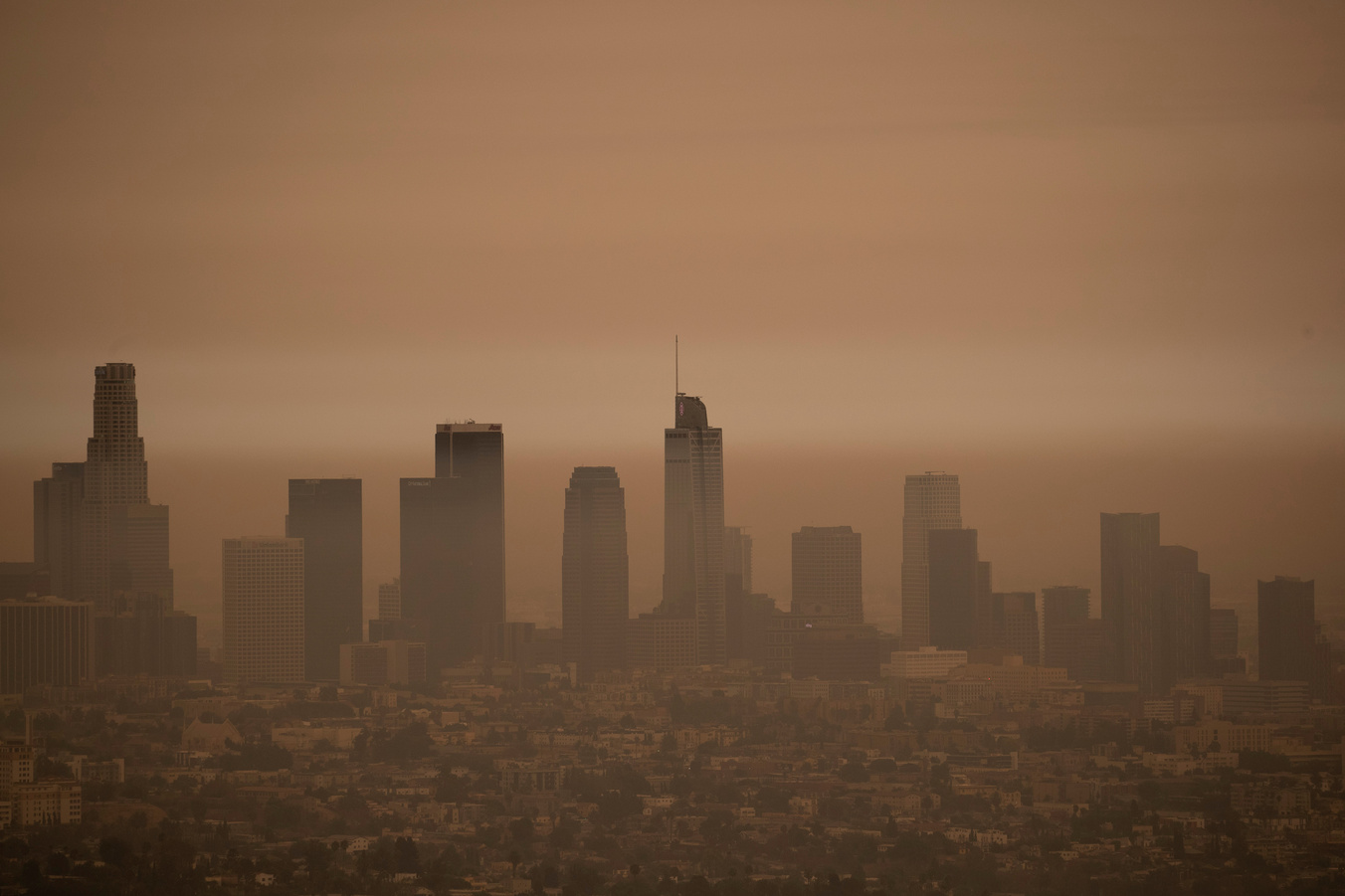
The LNU Lightning Complex Fire engulfs a ridge line near Aetna Springs, California, U.S. August 23, 2020. /Reuters
The LNU Lightning Complex Fire engulfs a ridge line near Aetna Springs, California, U.S. August 23, 2020. /Reuters
Smoke from California and Oregon wildfires has cloaked Canada's third-largest city, Vancouver, - known for its majestic mountain views and fresh ocean breezes - in the dirtiest air in the world this week.
Days have been spent smarting under a thick haze that has irritated eyes and throats, and sent asthmatics gasping for breath. It has also complicated COVID-19 testing.
On Friday, despite forecasted smoke-clearing rainstorms, the city - 1,300 km north of the biggest California fires - topped for the second time this week the World Air Quality Index for worst air, after briefly ceding first place to Portland in fire-stricken Oregon.
The Oregon Department of Environmental Quality's Air Quality Index is considered hazardous between 301 and 500. Values above 500 — which multiple Oregon cities have reported during the past week – are beyond the index's scale.
"I'm out of breath all the time, my chest feels like it's exploding, I feel like I'm going to suffocate," Fatima Jaffer, a doctoral student at the University of British Columbia, told AFP.
"I'm afraid of the long-term damage this smoke might do to my lungs and my asthma."
Authorities for the metropolitan region of 2.5 million residents have been issuing daily air quality warnings since September 8, with things so bad Vancouver opened five filtered "clean air shelters."
The fire smokes are equivalent to smoking eight cigarettes a day, researchers noted. Health officials urged all citizens to close windows and avoid strenuous exercise or outdoor activities - especially those with respiratory illness.
It's been an "entire horrible week for air quality," said Armel Castellan, a federal warning preparedness meteorologist.
"The fine particulate has brought our Air Quality Health Index up off the charts.
"There's no doubt this is very massive and very concerning," he said.

Downtown Los Angeles is pictured amidst smoke from the Bobcat fire, September 10, 2020. /Reuters
Downtown Los Angeles is pictured amidst smoke from the Bobcat fire, September 10, 2020. /Reuters
COVID-19 and wildfire smoke
The same people are at most risk of smoke inhalation and the coronavirus, according to provincial health officer Bonnie Henry. The past month has seen British Columbia's active Covid-19 cases surge 130 per cent, hitting highs more than double those at the pandemic's April peak.
"For many of us, there's confusion about what symptoms are caused by smoky skies, and what symptoms are caused by COVID-19," Henry told a news conference, "particularly for people who have underlying lung disease, asthma, heart disease and diabetes."
"If you're outside and homeless, and surrounded by this smoke and the pandemic, you can't get away from any of these things," said Jeremy Hunka, with Union Gospel Mission. "It's hitting a group of people that generally have been just left far more vulnerable."
For North Vancouver professional dog-walker Barry Appal, 64, he and his wife 10 years his senior have had to wear masks outdoors and avoid usual strenuous trails.
"After a half-hour you could feel it in your lungs and get a headache," he said. "We're active and healthy, but with COVID-19 around, picking up any respiratory thing could become a bigger problem than normal."
Some U.S. experts also warned that bad air quality from the wildfire smoke increases the risk of people getting infected with the coronavirus.
(With input from AFP)